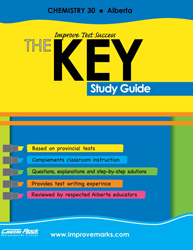It’s FSA week. Starting last Monday schools have been instructed to take attendance and report absences to the Ministry of Education. What’s the issue? The government is worried that parents might actually decide to pull their children from the writing of FSA’s. Apparently lacking the confidence to convince parents to participate it would seem that the tack being taken is to invoke the force of the school act. That’s to bad. One would think that the deputy minister and his government would rather convince people of the value of these narrow -scope exams rather than opt to ramp up the rhetoric.
B.C. – The battle between the Ministry of Education and B.C.’s teachers’ unions over the annual Foundation Skills Assessment is likely to heat up today, with the ministry putting pressure on schools to report students who don’t take the controversial test.
Teachers’ unions are urging parents to pull their children from the tests, which are administered provincewide in Grades 4 and 7 to assess basic skills. They say the tests, the 2007 version of which are administered beginning today, don’t promote learning and are abused by the Fraser Institute to rank schools.
But the Education Ministry is fighting back, saying teachers are misleading parents by telling them they have the right to remove their children from the reading, writing and numeracy tests known as the FSA.
Students may be excused by the school principal only when they have learning disabilities, are new ESL students, are ill or are in the midst of a family emergency, the ministry says.
This year, for the first time, principals will have to report all excluded students to the district superintendent, and it’s clear long lists won’t win praise.
Ken Denike, Vancouver school board chairman, said the two sides are headed for a showdown.
“My reading of it is that the union has rolled up and put a line in the sand and the government is rolling up on the other side and they’re going to roll right over them,” he said in an interview.
The ministry has an advantage in that the lead union — the B.C. Teachers’ Federation (BCTF) — has been all but paralyzed by a contract feud with its employees. That put the brakes on a plan that could have seen teachers refuse to administer the tests this year in every school.
Still, a Vancouver union local says it has had such success with an ad campaign directed at parents that it expects the tests won’t even be handed out in a dozen elementary schools.
“I know for a fact there will be fewer students writing the tests this year,” said Glen Hansman, president of the Vancouver Elementary School Teachers’ Association, which has been campaigning against the FSA since 2002.
The goal, Hansman said Friday, “is to stop the dividing of schools between winner schools and loser schools.”
He was referring to the Fraser Institute report card on B.C. elementary schools, to be released later this month, which ranks schools according to FSA results.
Penny Tees, president of the B.C. School Trustees’ Association, says she doesn’t like the rankings either, but the tests are helpful and must be administered.
“Used properly, the assessments can help to further the dialogue on how the achievement in our districts, and in the education system as a whole, can be advanced,” she says in a letter to trustees last week.
The B.C. Public School Employers’ Association, which represents school boards in labour issues, also got involved by sending an e-mail to boards advising them of their rights and responsibilities with respect to the FSA.
“Any inaccurate information provided to parents by a teacher or the BCTF . . . should be corrected,” the association said in an alert to members.Teachers were told they have no right to send information opposing the FSA home with students, but Hansman said his union disputes that.
“We’ll resolve that through the grievance process,” he added.
Hansman said some teachers are opposed to the tests because of the rankings but others have broader concerns about the “accountability agenda” of the Liberal government.
“We’re being held to higher and higher account but we still don’t get the resources to do that work.”
Hansman said he doesn’t want to see teachers, parents and principals butting heads over the issue.. “I don’t foresee that happening in Vancouver. My sense is that principals and school communities have been respectful of the choices that parents have made.”
The tests are to be written over a two week period, with results available next fall. [By Janet Steffenhagen]
 Test prepping is big business. The linkages between advocates of expanded testing and corporations profiting are at times hidden behind multiple layers of faux-academic research and policy institutions -like the
Test prepping is big business. The linkages between advocates of expanded testing and corporations profiting are at times hidden behind multiple layers of faux-academic research and policy institutions -like the 